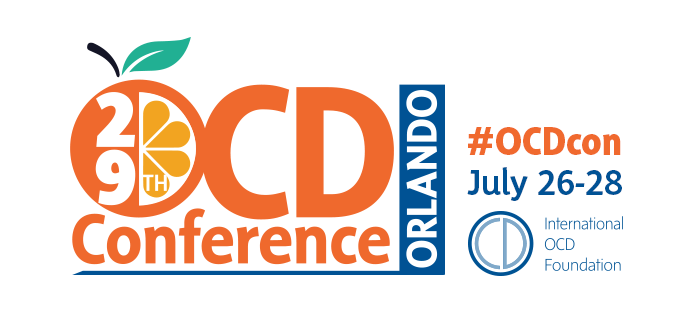What is perfectionism? Oxford dictionary defines it as “refusal to accept any standard short of perfection.”[1] That’s automatically problematic.[2] Perfectionism leads to a circumscribed focus, stress, and suffering for not only individuals, but for loved ones nearby who feel the weight of being perfect.
Is this the same as OCD? Nope. OCD and perfectionism often get confused. They both can affect and drive distress in one another, but they are separate. OCD involves unwanted (intrusive) thoughts, urges, and impulses that cause distress; furthermore, compulsions are repetitive behaviors or thoughts that attempt to reduce distress or prevent something bad from happening. Perfectionistic manifestations of OCD, often referred to as “just right / not just right” fit this categorization. Separately, in Perfectionism, someone pursues “perfect” thought, behavior, or action initially out of interest or enjoyment (rather than to suppress an intrusive thought/urge/impulse, like in OCD).[3] There are typically problems that go with this, however. So a difference between the two is that OCD is ego-dystonic and Perfectionism is typically ego-syntonic (you can check out my video here explaining the difference).
Examples of perfectionistic thoughts and behaviors[4,5]:
- Arranging objects in special ways
- Avoiding the use of something once it is in “perfect” condition
- Being “perfectly” religious or spiritual
- Black and white in theories, views, and the way things “must” go
- Buying only “perfect” items
- Checking for the “perfect” decision or choice
- Conscientious at a “perfect” level
- Cutting hair “perfect” or symmetrical
- Dishes done perfectly or in certain placement
- Doing certain activities at “perfect” times or in “perfect” order
- Do something until feeling “just right”
- Home being “perfectly” neat or clean
- Items neat and “perfect” in closets, drawers, or storage
- Laundry done in “perfect” order
- Learning everything
- Lists/records kept to “perfection”
- Making appearance “perfect”
- Needing to remember or memorize “perfectly” or in order
- Need to have “perfect” awareness of everything in one’s environment
- Possessions must be unused or in “perfect” condition
- Punishing oneself when not acting “perfectly”
- Pursuing conscientiousness to a level of overlooking other key details
- Reading (and re-reading) every word
- Redoing decisions to pick the “perfect” one
- Slowness in activities in order to behave “perfectly”
- Thinking on topics exactly or “perfectly”
- Unable to relax until everything is done “just right”
- Unable to tolerate other points of view
- Visually tracing, lining up, or looking at things “perfectly”
- Writing (and re-writing) to make “perfect”
- “Perfectly” be honest or truth telling
- “Perfectly” confess wrong
- “Perfectly” maintain possessions as neat and clean
- “Perfectly” manage money
- “Perfectly” manage time
- “Perfectly” saying things
- “Perfect” self-denial
Any one of these does not mean a clinical diagnosis is appropriate. In fact, any one of these approaches done with flexibility may be an asset. But when inflexibility and rigidity dominate, there will be problems.
My Perfectionism
I am a “recovering” perfectionist. And it’s a problem when I’m not, well, “recovering” from it. One of the mechanisms that keeps perfectionism going is the belief that it is helpful (this is a “Positive Belief” about perfectionism, and it is a cognitive distortion). When I succeed at a task- and especially if I get a lot of praise, it is a natural reinforcer that I must be doing well. However, if I spent 8 hours researching, writing, and proofing this blog today, that is problematic for me at this point in life (and I easily can spend that much time). What is a problem or not sometimes depends on the person and their situation- maybe a journalist would spend that much time or even more, but I am a full-time clinician with a family, church, volunteer involvements, and hobbies. If I make this post “perfect,” in my perfectionism, I will seriously miss out on other things.
This pursuit of perfection doesn’t stop with one blog post. It will always generalize if allowed. So if I let it, the pressure of perfection will continue (and does, at times) to move on to other things like caring for my home, caring for people in my life, my relationship with others, my diet, exercise, my spiritual walk, my car, money, and so on. And being honest with you, these things are tied up in anxiety and simultaneously selfishness- attempting to control these things rather than to engage with them/others in a meaningful way by learning to lean into the fear and live based on what is valuable.
Parenting is probably the single biggest event that pressed me with the realization I need really challenge my perfectionism. There are two stark realities to me in life: I can either do my work/relationships/home life/etc. “perfectly” and end up in an ever narrowing scope of anxious overwhelm trying to keep all the balls in the air, OR learn to tolerate the distress that comes doing things “not just right” and focus on the big picture, growing towards what I love and value. And the reality usually is that in time, this fear habituates when not engaging in avoidance, rituals, or control strategies.
Making Change
Whether in therapy or personal life, to change how I behave and think and respond in life, I need to be aware/monitor what it is that needs to change (good therapy, support, and resources such as on my website can help). Even if I know what needs to be done, if I can’t effectively observe and catch it when it occurs, I will not be able to change it. Next, I will need tools and strategies to effectively grow and mature. In therapy, some of these are Exposure Therapy, Cognitive Restructuring, and more. In essence, at the point of the problem I must be able to insert the solution- and consistently. Lastly, I want to continue to monitor and gain feedback to incorporate learning and solidify growth. I don’t want to oversimplify this- if you are having a problem with any of the areas I have discussed, please reach out to a competent trusted person and/or therapist.
Today I gave myself the time limit of 3 hours- start to finish- to research, write, upload and post. And it’s simultaneously stressful and joyous at the same time. I’m going to do a behavioral experiment and keep doing it- “testing” whether or not my choice(s) in leaning into my fear of failure a) doesn’t end up as bad as it feels like it will, and/or b) I was able to handle or face it anyway. We’ll have to see- I’m leaning in!!!
Openly,
Justin K. Hughes
References:
[1] https://www.lexico.com/en/definition/perfectionism
[2] First of all, it’s a whole mess to even get into a truly perfect standard- if I make and continue to make mistakes, I am not perfect. I cannot even begin to conceive what perfect is, then, since I would make a mistake in defining “perfect.”
[3] The Diagnosis of Obsessive Compulsive Personality Disorder (OCPD) may apply when a person pursues perfectionistic behavior to pathologically disordered levels.
[4] Grayson, J. (2014). Freedom from obsessive-compulsive disorder: a personalized recovery program for living with uncertainty. New York: Berkley Books.
[5] Minirth, F. B., & Meier, P. D. (2015). Happiness is a choice: enhance joy and meaning in your life. Grand Rapids, MI: Spire.









Leave a Reply